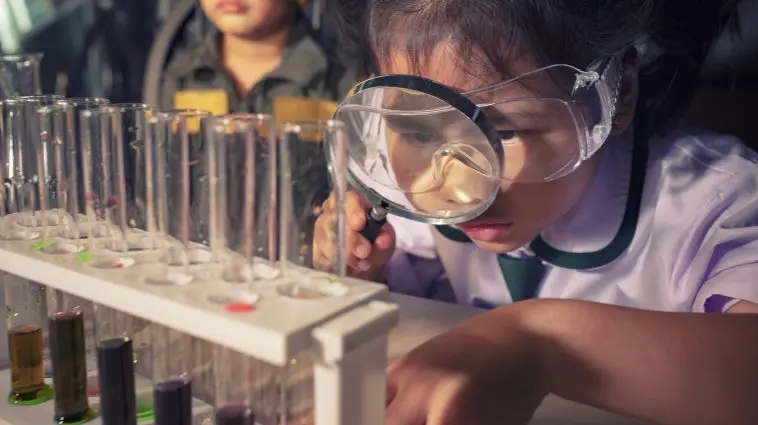[Originally published as the third part of TCQ Week 1: Introduction: Should Christians Care About Science?]
The Pursuit of God’s World
I love going to nature museums. But as a Christian — and specifically as a young-age creationist — there are always two sides to those experiences. Of course, it is an opportunity to wonder at God’s creation. But sadly, it’s also a chance to see the depravity of man.
As a culture, we are so intent on expecting science to give us all the answers. This view, known as scientism, really took hold in the years following 9/11 with the rise of the so-called New Atheists. Those associated with this movement such as Richard Dawkins, Sam Harris, Daniel Dennett, and Christopher Hitchens argued extensively that science has all of the answers. Religion is not only unneeded, it is dangerous.
There are two things I believe we must do to respond to this mindset: understand the arguments against scientism and engage in science ourselves as Christians.
The Arguments Against Scientism
To give a more precise definition, scientism is the view that only the hard sciences have something to say about the big questions of life. If it can’t be decisively decided by science — whatever it is — we shouldn’t think of it as absolute truth, but as an open question.
This mindset is incredibly narrow and has multiple problems, a few of which we’ll discuss below. We’ll go more into detail on this next time when we discuss what science is.
Science has limits
We need to understand that science is extremely limited. If you want to get technical, science requires the use of a fallacy in deductive logic known as “affirming the consequent.”
Consider this logic:
- If Darwinian evolution is true, there will be bones in the ground demonstrating a clear evolutionary progression from one organism to another.
- There are bones in the ground demonstrating a clear evolutionary progression from one organism to another.
- Therefore, Darwinian evolution is true.
You might think this makes sense. But let me put it another way:
- If it rained last night, it must be wet outside.
- It is wet outside.
- Therefore, it must have rained last night.
See the problem now? The argument “affirms the consequent,” which means that premise 2 of the argument “it is wet outside” assumes the truth of premise 1: if it’s wet, it must have rained. But there are many reasons the ground could be wet other than rain. We could make the argument sound like this:
- If it rained last night, it must be wet outside.
- It rained last night.
- Therefore, it must be wet outside.
A valid argument will be necessarily successful if the premises are both true. But an invalid argument will have a flaw in its construction, like “affirming the consequent.”
In logic, this is recognized as false because it leads to absurd conclusions (such as a logically false argument with true premises). In science, though, this is less clear because it is the exact structure with which we must form hypotheses.
Now let me be clear that this is NOT how scientists come to their conclusions. Scientists use inductive logic instead of deductive logic, which means they treat these hypotheses as such — hypotheticals — and look to falsify them.
But that’s exactly my point. Science can only, in principle, falsify. It cannot prove anything with absolute truth because it cannot produce a logically valid hypothesis.
Science needs philosophy
It is common for advocates of scientism to claim that philosophy is dead. For example, Stephen Hawking once remarked:
…philosophy is dead. Philosophy has not kept up with modern developments in science, particularly physics. Scientists have become the bearers of the torch of discovery in our quest for knowledge.
But this is necessarily false. Why? First, consider that science was once called “natural philosophy.” That ought to tell you a little about how scientists of the past thought about their work.
But more than that, even the statement “scientists have become the torchbearers” is a philosophical statement. Scientism is, ironically, a philosophical position. To claim that only science can produce truthful answers to our big questions is itself a philosophical belief statement.
How do I know this?
Simply because no “science” was used to come to that conclusion! No experiment or observation drove him to that necessary conclusion. You can’t have it both ways: Either science alone can answer the big questions or it can’t. And if you can’t know what’s true apart from science, then you couldn’t even know that science was true.
Science is a human construction
Finally, we should remember that science is an interpretive device invented by humans. I want to be clear that God did not “invent” science or the scientific method. These constructs are the best attempts humanity has made to understand the natural world God has given us.
Proverbs 25:2 says,
It is the glory of God to conceal a thing: But the honour of kings is to search out a matter.
God loves to send us on scavenger hunts for his treasures, and science is one of the best ways we’ve found to do that. But it’s a human device. And therefore it will have flaws, it will not be perfect, and it certainly should not be relied upon to lead us into all truth.
We Should Engage in Science
It’s safe to say that for most if not all of us, our career path is settled. It’s quite unlikely any of us are going to stop everything we know and become scientists as a result of this study.
However, all of us are engaged in God’s Great Commission, and many of us have children. I’ve given you some tools for using science in your gospel conversations. But I think beyond that, we should do our best to help our children engage in scientific learning and even encourage them to be scientists one day.
Think of it like politics.
Some wonder whether Christians should be in politics. But here’s my question: If Christians aren’t engaged in politics, then those who make our laws will be non-Christians by definition. And surely that is not great for “One Nation, Under God.”
It’s the same way with science. Many of us complain that science is biased against Christians, but few of us engage with it or encourage our kids to.
My two oldest boys are both (very differently) interested in science. And I would love nothing more than for both of them to go into scientific fields holding strong Christian convictions and working hard to show God’s glory in creation.
We NEED the next generation of creation scientists to step up. We need people in all branches of science to usher in the next revolution in scientific thought.
We’ve done a lot of study with very little, but there is much more to do. Our families could have a major part in that one day if we would only encourage it! Part of the reason for classes like this is so that we might not shy away from tough questions sometimes raised by science, but rather that we’d have a mindset open to exploration.
We don’t have to be afraid of God’s world. One of my favorite creation scientists said it like this:
Back in 2015, when the skeletal remains of a human form called Homo naledi were first announced to the world, I remember one creationist responded, “Here we go again.” The Homo naledi discovery in a cave north of Johannesburg, South Africa is the richest hominin fossil discovery on the entire continent.
When the ongoing excavations are complete, there will be thousands of bones from dozens of bodies. You know who knew about those bones before they were discovered? God knew. He made those bones. He made those people. They’re part of his creation. How could a Christian ever see such an amazing discovery and not fall down in gratitude and worship to our Creator for giving us the ability to find these glimpses of his glory? How could we ever say, “Here we go again”?
The Homo naledi bones have been down there in the Rising Star Cave for thousands of years, right under the noses of four million residents of Johannesburg. What wonders of God are right outside your door? What amazing discoveries are lurking in your own back yard? God is waiting for you to find them. (Wood, Todd Charles. The Quest (p. 107). Compass Classroom.)
We should engage in the loving act of getting to know our Creator more deeply through the study of his amazing world. We should go on the treasure hunt he has called us to. And we should take every opportunity to bask in his great glory through science.







